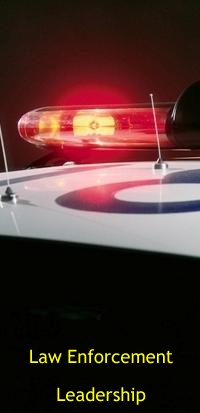|
Police Department Leadership: Leadership Issues: Managing Change
Managing despite the 3% at 50 rules and changing generations; From Boomers to Nexters What's next?
Rick Michelson
Changes in Latitudes, changes in Attitudes
Perhaps
Jimmy Buffet had it right; ones attitudes will change with ones perspective. Leadership in public safety agencies, particularly
police agencies, is at a critical crossroads. Early retirement incentives have
enticed experienced personnel to leave their departments in mass numbers, creating a shortage of experienced supervisors. In addition, there has been a graying of the department with the majority of
the existing leaders in the Baby Boomer generation (those born between 1943 and 1960) all reaching retirement age at or about
the same time. A third contributing factor in the leadership crisis is budgetary
constraints as a result of less government funding and under-funded pensions, resulting in fewer dollars for training. The exodus of experienced supervisors has created a unique challenge for law enforcement
agencies to fill openings quickly, while continuing to manage the daily operations (both administrative and tactical). Unfortunately, little has been done to develop the next generational pool of candidates
in terms of succession management or career development; many agencies have taken a laissez-faire approach to this growing
crisis in public safety. Without effective oversight from supervisors, police
agencies leave themselves vulnerable to liability and lawsuits.
READ THE ARTICLE
Qualities of Police Leadership
by Inspector Gord Schumacher L.L.B.,
Winnipeg Police Service
"My name's Friday, the story you are about to see is
true."
Most police leaders at the senior and executive levels will remember that phrase recited near daily
by Sgt. Jack Webb from the 1950's police show "Dragnet." This show was at the time revered as being as close to the real thing
as you could get on television, and may have influenced some of us to become police officers in the first place.
READ THE ARTICLE
People depend
on police officers and detectives to protect their lives and property. Law enforcement officers, some of whom are State or
Federal special agents or inspectors, perform these duties in a variety of ways, depending on the size and type of their organization.In most jurisdictions, they are expected to exercise authority when
necessary, whether on or off duty.
Uniformed police
officers have general law enforcement duties, including maintaining regular patrols and responding to calls for service. They
may direct traffic at the scene of an accident, investigate a burglary, or give first aid to an accident victim. In large
police departments, officers usually are assigned to a specific type of duty. Many urban police agencies are involved in community
policing—a practice in which an officer builds relationships with the citizens of local neighborhoods and mobilizes
the public to help fight crime.
Police agencies are usually
organized into geographic districts, with uniformed officers assigned to patrol a specific area, such as part of the business
district or outlying residential neighborhoods. Officers may work alone, but, in large agencies, they often patrol with a
partner. While on patrol, officers attempt to become thoroughly familiar with their patrol area and remain alert for anything
unusual. Suspicious circumstances and hazards to public safety are investigated or noted, and officers are dispatched to individual
calls for assistance within their district. During their shift, they may identify, pursue, and arrest suspected criminals;
resolve problems within the community; and enforce traffic laws.
Read On
|
